About Tokyo Tech
About Tokyo Tech
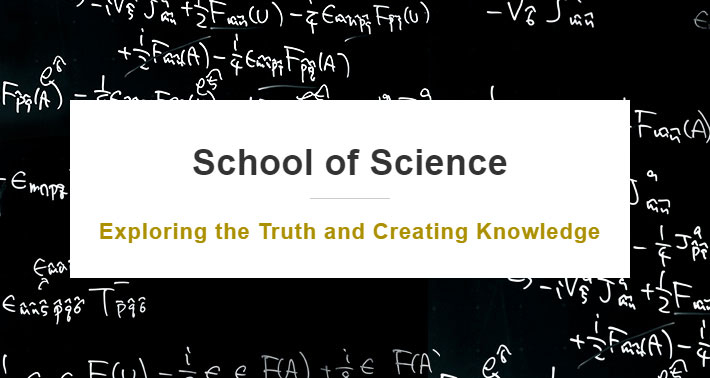
Science is inquiring into laws and logic, motivated by interest in the fundamental principles of how the natural world is made. In the School of Science, students study the laws hidden within all sorts of phenomena, such as the elegant theorems built from layers of logic, the structure of the microworld from molecules and atoms to nuclei and elementary particles, and even the internal structure of Earth and the structure of the universe. Imagine the astonishment from the realization that the structure of the sprawling universe can be revealed through reasoning and experiments. Picture the joy in creating never-before-seen substances by making various materials react with each other, and the thrill of verifying inferences made about the interior structure of the earth through experiments above ground. The School of Science trains students to engage in this kind of cutting-edge research, and produces graduates who can succeed in society on the basis of these skills.
![]()
![]()
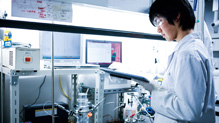
The School offers an ideal place for students hoping to pursue in depth those fields that spark their interest.
Being able to study the field you like, based on your interests, is the biggest appeal. Students will become able to decide what field to concentrate on based on the knowledge acquired after entering university among the fields of mathematics, physics, chemistry, and earth and planetary sciences. This is important as subjects taught at university are quite different from what students might have previously imagined.
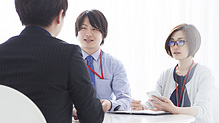
You develop the fundamental skills for your preferred fields, which makes finding a job easier.
Students will find that their years of study at their School of choice is rewarded with good job prospects. Graduates of the School of Science have a reputation for having a solid academic foundation, so that when a problem occurs in the workplace, they do not just take temporary measures ? they get to the root cause and produce a real solution.
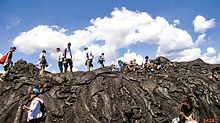
Making new friends at the School of Science will make the college experience even more fulfilling.
Our community of highly capable students intellectually stimulates each individual through interaction with their peers. Voluntary study groups are popular among our students, and some students make progress beyond what is usually required in class. Students with similar interests congregate here, making the place an ideal base for those wishing to immerse themselves in their studies and club activities.
School of Science |
1st year of bachelor's program |
Undergraduate Major (undergraduate study year 2?4) |
Graduate Major |
|---|---|---|---|
School of Science |
|||
School-Affiliated Research Center |
|||
* Interdisciplinary graduate majors connected to multiple departments
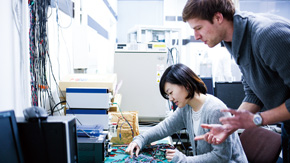
With the increasing globalization of society in recent years, the internationalization of the course curriculum has also become an important issue. At the School of Science, we have a group of full-time faculty who are native English speakers teaching courses in Mathematics, Physics, and Chemistry since 2015. Attendance is not limited to international students. The courses are effective for improving English proficiency, and the number of Japanese students taking these courses is on the rise. We are making steady progress in our effort to internationalize our Basic Science and Technology Courses.
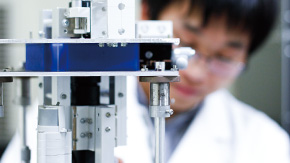
In the School of Science, we hold seminars and joint forums on cutting-edge scientific research by inviting guest lecturers from around the world. Undergraduate and graduate students have also planned and carried out international workshops. Through these avenues we provide students with opportunities to be directly involved with frontline activities.

The School is not only dedicated to the education of students but the training of faculty as well. The school offers study sessions on teaching and conducts mutual classroom observation by teaching staff. All of us are always looking for ways to provide the best education and learning environment possible for Tokyo Tech students. Other initiatives include the conferral of awards on two of our junior faculty members every year in recognition of teaching excellence.
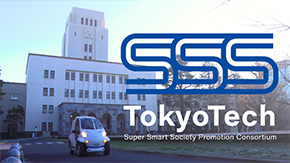
Tokyo Tech is newly launching a consortium to promote the realization of Super Smart Society (Society 5.0), and planning to develop future leaders who are capable of supporting the transformation to Super Smart Society. To accomplish this aim, Tokyo Tech is looking for highly motivated companies who wish to join this consortium and support this education program.
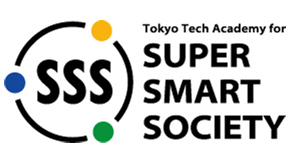
The WISE (World-leading Innovative & Smart Education) program for Super Smart Society (WISE Program for SSS) is an integrated master's and doctoral degree program offered by the Tokyo Tech Academy for Super Smart Society. The program's objective is to help students develop competencies and skills they will need to become "knowledge professionals" ("super PhDs") integrating physical space technologies with cyber space technologies as well as combining advanced sciences and technologies, such as quantum science and artificial intelligence.
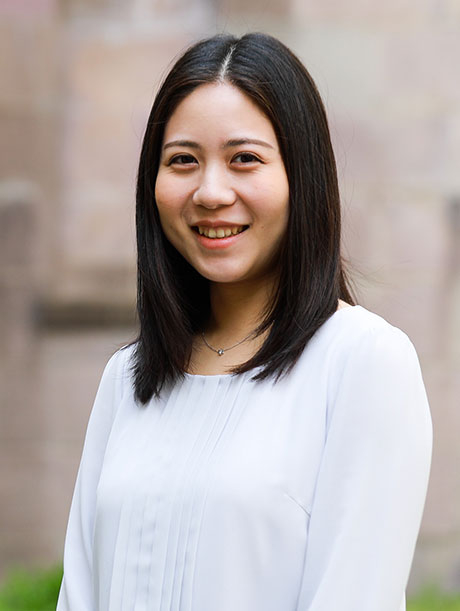
Working on Research for the Visualization of Four-Dimensional Manifolds
Ayaka Ise
2nd-year master's student, AY 2017
Department of Mathematics, School of Science
It is difficult to see four-dimensional manifolds (figures) in real life. In modern mathematics, we are able to visualize them by decomposing them into "handles". My research theme contemplates the four-dimensional sphere. Before we started studying pure mathematics in university, we learned about spheres as two-dimensional figures. However, mathematics allows us to consider higher dimensional spheres. Visualizing four-dimensional manifolds helps us to investigate four-dimensional spheres, and results in further development of mathematics. I am extremely intrigued by this challenging, worthwhile and groundbreaking work.
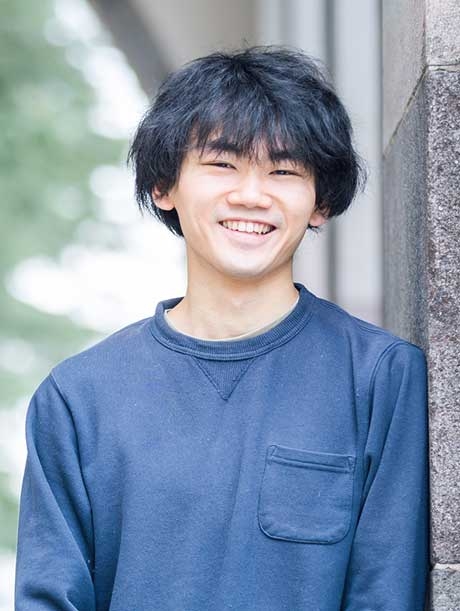
Enjoying the Beauty of Paths That Past Mathematicians Have Built
Ryo Komiya
1st year master's student, AY 2022
Department of Mathematics, School of Science
I am studying generalization of what is known as "Iwasawa theory" in number theory. Before I started to learn this specific theory, none of the integer questions I had practiced at high school looked connected each other. But now, I’m beginning to understand the connection thanks to the theory. My joy is gaining the ability to understand something I was unsure before as I continue working on the subject. One of the charms of learning mathematics is to be able to trace and enjoy the beauty of the paths that mathematicians have built to date.
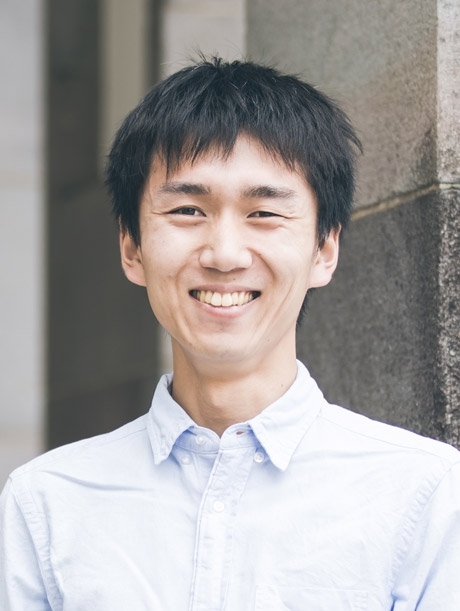
Collaborating with Researchers Worldwide to Unravel the Origins of the Universe
Shota Izumiyama
1st-year master's student, AY 2019
Department of Physics, School of Science
I research in the field of elementary particles, the smallest particles in existence as well as the most fundamental units of nature. My aspiration is to better understand the types and nature of elementary particles to discover fundamental answers to the natural world, such as the origins of the universe. Since experiments in the domain of elementary particle physics are extremely large in scale, I conduct my research through collaborations with researchers around the world.
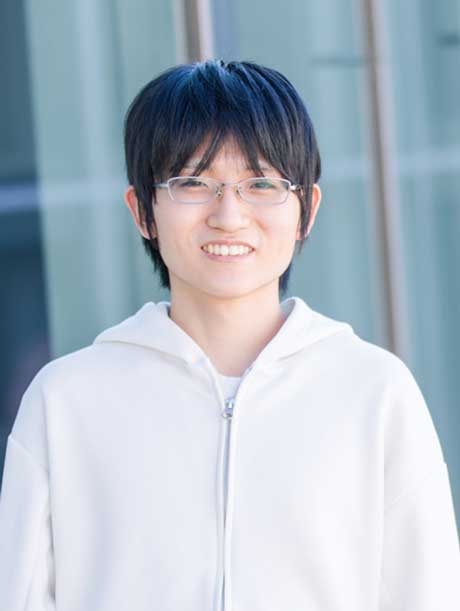
Discovering the Inside of the Neutron Starts with Nuclear Physics-Based Simulation
Kenta Yoshimura
1st-year master's student, AY 2022
Department of Physics
In my research theme, I mainly use methods of computational physics (numerical simulations). This field has advanced in recent years and is considered a third approach to supplement the two traditional fields in physics: theory and experiment. With the advancement of computer technology, there are high hopes that this approach will result in further applications. By uncovering various physical phenomena that are beyond the reach of both theory and experiment, such as the inner structure of celestial objects, I hope to bring new knowledge to the field of physics.
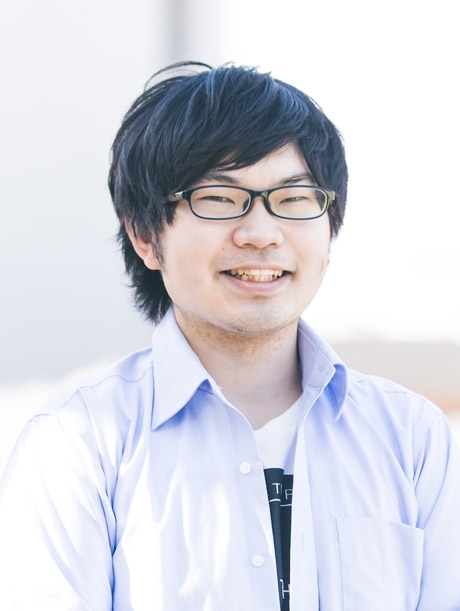
Working on New Reaction Development and Chemical Compound Synthesis with Complex Carbon Structures
Takuto Takano
1st-year master's student, AY 2019
Department of Chemistry, School of Science
The mission of my research is to develop new reactions using alpha- and beta-unsaturated carbene as well as to synthesize chemical compounds with complex carbon structures. I find it fascinating when such efforts generate unexpected results, and it makes me wonder why such phenomena occur. The sense of achievement I get when finally creating a compound I had envisioned is also very special. My dream is to formulate complex compounds from easily synthesized molecules in single connected sequences during these daily endeavors.
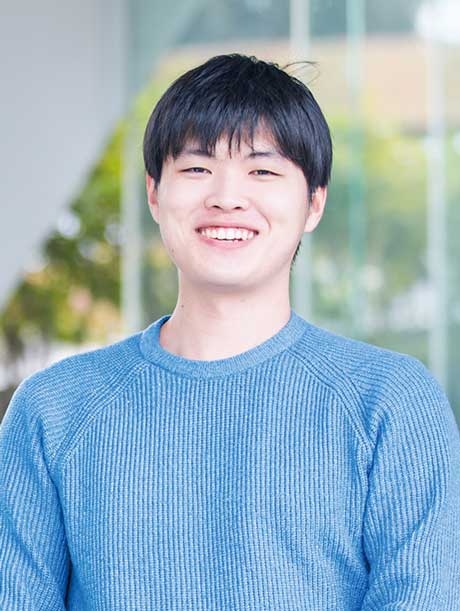
Discovering "My Best" from Many Choices of Research Topics and Laboratories
Taiki Kimura
1st-year master's student, AY 2022
Department of Chemistry
When I joined Tokyo Tech, I was first interested and looking to do research in the theoretical field of chemistry. But as I continue learning, I have discovered the joy to physically observe targeted objects. I am currently engaged in research activities in physical chemistry and feel motivated especially when my predictions based on the theory and past data have yielded results that are consistent with actual measurement. One of the attractions in learning at the Department of Chemistry is the range of choice of research topics and laboratories.
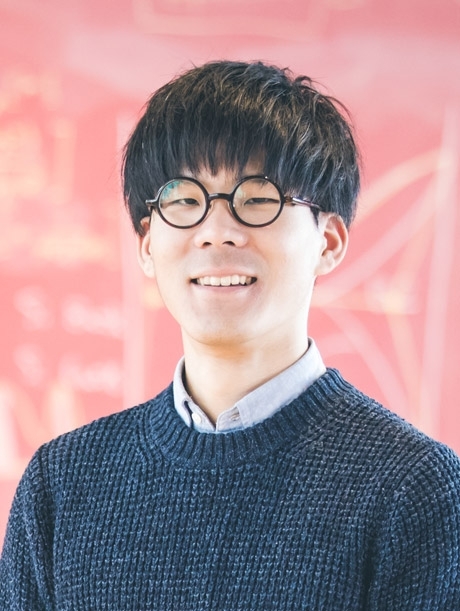
The Goal of Building an Established Scenario for Planetary Formation
Ayumu Kuwahara
2nd-year master's student, AY 2019
Department of Earth and Planetary Sciences, School of Science
Structures known as "protoplanetary disks," comprised of gas and dust, form near emerging stars. It is believed that planets are created through the repeated collision and merging of small dust particles in the interior of such disks. I focus on the intermediate stage in this planetary formation process, in which gas remains in the vicinity of newborn planets. More specifically, my research uses the hydrodynamic approach to evaluate the impact of this gas on planetary formation.
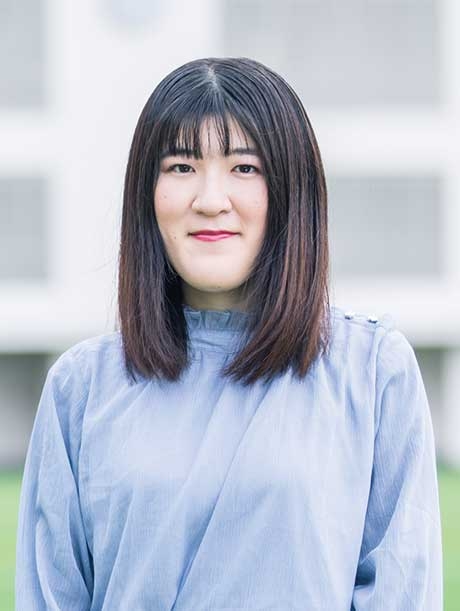
Deriving a Scenario to Uncover Mysteries in Jupiter's Formation
Ayumi Ono
2nd-year master's student, AY 2022
Department of Earth and Planetary Sciences
Planets like Earth are thought to have formed as a result of collision and the gathering of dust from protoplanetary disks, structures composed of dust and gas. I am focusing on the unique composition of Jupiter's atmosphere and am trying to figure out the process of the formation of the planet by simultaneously calculating the growth of dust and the temperature structure change over time. To me, it is fun and fascinating to compare simulation output with observed results, and derive a scenario through a number of trials and errors.
Students - 1,167
Faculty - 166
* Number of students and faculty members are as of May 1, 2022.
Click below for the list of School of Science faculty.
<Undergraduate Degree Program>
First-Class Teaching Certificate for Lower Secondary School(Mathematics, science)
First-Class Teaching Certificate for Upper Secondary School(Mathematics, science)
<Master's Degree Program>
Advanced Class Teaching Certificate for Lower Secondary School(Mathematics, science)
Advanced Class Teaching Certificate for Upper Secondary School(Mathematics, science)